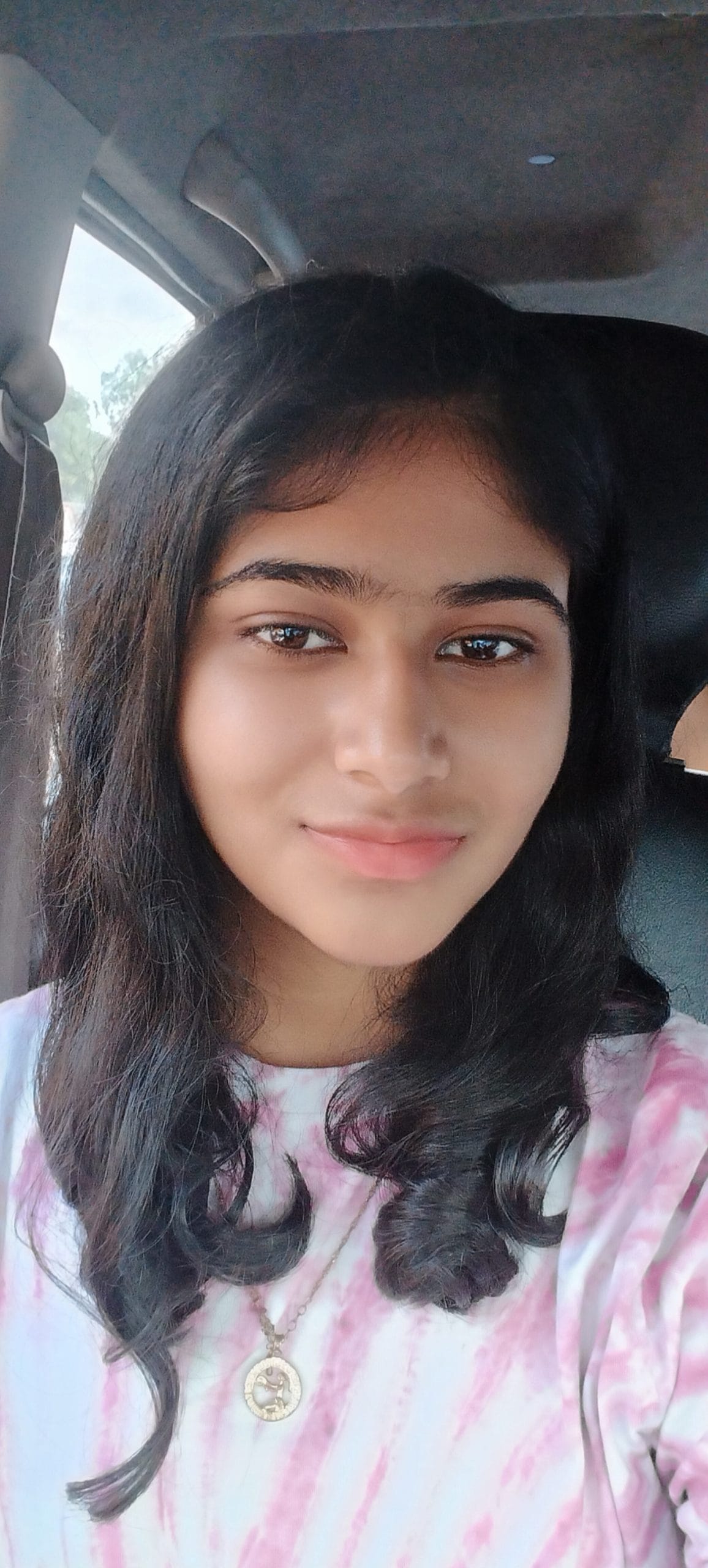Rethinking Therapy: How VR Can Transform Mental Wellness in India

Niyama Kashyap
June 13 , 2024

Imagine struggling with anxiety, your heart pounding at the thought of a simple social interaction. Or picture a soldier haunted by memories, unable to find peace after returning from service. These are just a few of the realities faced by millions in South Asia, a region grappling with a significant mental health burden. Traditional treatment options are often stretched thin and geographically inaccessible, leaving many feeling hopeless. But a beacon of hope emerges – Virtual Reality (VR) therapy – offering a transformative and engaging approach to mental healthcare. Mental health issues are far more common than you might think. In India alone, one in seven people experiences a mental health disorder. Social stigma, limited access to qualified professionals, and high treatment costs create a substantial barrier to care. This can have a devastating impact on individuals, families, and communities. VR therapy has the potential to change this narrative.
How VR Therapy Can Help You?
Virtual reality (VR) isn't new - ideas about it have been around for ages (since the 1960s!). But recently, VR technology has gotten much better and more affordable for consumers. VR is mostly used for entertainment like games, but it's also being used in surprising ways, like helping people with mental health problems. Therapists are now using VR to do a kind of therapy called exposure therapy.
Beyond exposure therapy, psychologists are excited about VR's potential for diagnosing mental health conditions. VR could allow for faster and more reliable diagnoses compared to traditional methods that rely on interviews. Imagine immersing patients in identical virtual environments and analyzing their responses. This could be a game-changer for diagnosing Alzheimer's, schizophrenia, ADHD, and autism. The success of VR therapy in treating various conditions, from phobias and anxiety to PTSD and even anhedonia, shows promise for the future of mental healthcare. Imagine conquering your fear of public speaking by giving a presentation in a virtual auditorium filled with friendly robots instead of judgmental faces. Or picture yourself slowly calming down from a panic attack by being transported to a serene virtual beach with calming waves and gentle music. Sounds pretty cool, right?
That's where VR therapy comes in. It's discreet, immersive, and offers a whole new way to approach therapy. Here's the best part: it's actually fun. You get to explore virtual worlds, complete challenges, and all while tackling your anxieties head-on.

Photo by Vadim Bogulov Team on Unsplash
Now, let's get specific. VR therapy can be a powerful tool to combat various challenges faced by the South Asian community:
Anxiety Disorders: Whether it's social anxiety holding you back at family gatherings or generalized anxiety making daily life a struggle, VR therapy can expose you to triggers in a controlled setting, helping you develop coping mechanisms.
Phobias: Fear of flying preventing you from visiting loved ones overseas? Fear of heights making temple visits stressful? VR can create safe simulations, allowing you to gradually confront and overcome these phobias.
PTSD: For those dealing with the trauma of migration, cultural adjustment, or past experiences, VR therapy can create safe environments to process emotions and memories.
Virtual reality (VR) therapy is a new approach that's gaining traction, but how effective is it really? Experts like Lucy Dunning, a counselor who uses VR in her practice, say the long-term results are still being studied. However, early signs are promising, especially for anxiety, PTSD, and chronic pain.
Here's the exciting part: VR therapy combined with traditional talk therapy (CBT) has shown amazing results! Studies published in JMIR Serious Games suggest a success rate between 66% and 90% for people with PTSD. VR can even help manage pain without medication. For example, a study in Annals of Behavioral Medicine showed burn victims experiencing 35-50% less pain after "playing" in a virtual snowy world!
VR therapy goes beyond just fancy gadgets. Research is also exploring using avatars in virtual worlds. Studies in Frontiers in Psychiatry suggest VR-based CBT is effective for treating depression, especially for those hesitant about traditional therapy. Another study in JMIR Mental Health even highlights VR as a potential alternative to in-person therapy for people with social anxiety.

Photo by James Yarema Team on Unsplash
Is VR Therapy a Good Fit for You? Exploring Its Use in South Asian Communities
Within the South Asian community, VR therapy might be a particularly good option for individuals who enjoy gaming and are open to immersive experiences. However, it's important to remember that VR therapy is a complementary treatment, not a replacement for traditional practices valued in South Asian cultures.
Mental health issues in South Asian communities can often be shrouded in stigma. Talking about anxiety, depression, or phobias can be met with judgment or a dismissive "be strong." This is where VR therapy steps in as a game-changer. With its anonymity and privacy, VR therapy creates a safe space for people to confront their challenges without fear of social repercussions.
But VR therapy for South Asians goes beyond just offering a safe haven. Here's how it can be tailored to address specific anxieties prevalent in the region:
Social Anxiety: Imagine struggling with social interactions in large gatherings, a common concern in family-oriented South Asian cultures. VR therapy can create scenarios simulating crowded events like religious festivals or family gatherings. Here, you can practice social skills in a controlled environment, gradually building confidence for real-life situations.
Test Anxiety: Exam pressure can be immense in South Asian communities. VR therapy programs can create realistic test-taking environments, allowing users to experience the sights and sounds of an exam hall. By practicing relaxation techniques and coping mechanisms in VR, individuals can approach real exams with greater calmness and focus.
Public Speaking Anxiety: Whether it's giving a presentation at work or delivering a speech at workspaces the fear of public speaking can be debilitating. VR therapy can simulate presentations in various settings, allowing users to practice facing an audience and refine their delivery skills in a safe, virtual space.
Post-Traumatic Stress Disorder (PTSD): Unfortunately, war, violence, and displacement are realities faced by some South Asian communities. VR therapy can be a powerful tool for PTSD treatment, creating immersive experiences that allow users to safely confront traumatic memories and develop coping mechanisms in a controlled environment.
The Forbes Tech author and a mental health professional Dr. Davis emphasises that VR therapy can be a valuable tool for those struggling with depression, anxiety, social anxiety, phobias, or PTSD. It's important to note that VR therapy may not be suitable for everyone. Dunning cautions that individuals prone to motion sickness, vertigo, or with a history of seizures might experience discomfort. Additionally, VR therapy should not be the sole treatment for severe mental health conditions. If you're experiencing mental health concerns, seeking professional guidance from a healthcare provider is crucial to determining the most effective treatment plan. Dr. Davis also highlights that VR therapy isn't ideal for individuals with suicidal thoughts, as the anonymity of the virtual environment could limit a therapist's ability to intervene effectively.
Virtual reality therapy sounds promising, but it has limitations. While VR might make therapy more accessible, it requires technology and internet some people lack. Additionally, using VR for therapy is new, and finding qualified therapists might be difficult.The therapist's role in VR therapy is especially important, particularly when dealing with realistic scenarios. Inappropriate VR experiences could retraumatize people if not guided by a trained professional. There's also a concern about therapist accessibility during VR sessions. Finally, anonymity in VR therapy raises ethical concerns about patient safety. As VR therapy becomes more common, ethical considerations will need to be addressed.

Photo by julien Tromeur Team on Unsplash
Where the Future Meets Therapy: VR Spaces in India
Indian startups are creating VR experiences that resonate with the country's diverse population. Imagine a program for social anxiety that uses simulations of common Indian social situations, like a crowded wedding or a bustling marketplace. This cultural relevance can significantly enhance the therapeutic impact. Common mental health concerns in India, like stress due to academic pressure or family dynamics, are being addressed through VR programs. This tailored approach ensures the therapy is directly applicable to the audience's struggles.India's fast-paced life can be overwhelming. VR therapy programs can offer calming virtual getaways to the Himalayas or serene beaches, promoting relaxation and stress reduction techniques. The success of telemedicine in India paves the way for VR-based teletherapy. This could be a game-changer, providing access to specialists in remote areas where qualified therapists might be scarce.
Several clinics across India are utilizing virtual reality (VR) therapy to treat various mental health conditions and phobias. Sahayata Clinic in Kolkata employs VR modules for depression, anxiety, and phobias using realistic panoramic videos. Udayan Mental Health Care in Delhi emphasizes VR's effectiveness for phobias and provides personalized progress reports. The National Institute of Physical Medicine and Rehabilitation (NIPMR) in Kerala incorporates VR therapy for autism, cerebral palsy, and learning disabilities. Similarly, CogniHab in Jaipur offers VR programs for a wide range of conditions across all ages. Finally, Manasvi Specialists in Bangalore utilizes VR for phobias and anxiety, with therapists present to guide patients during sessions.
Imagine conquering your fear of heights by virtually scaling a mountain, or chilling on a sunny beach to combat anxiety. VR therapy is entering the mental health scene in India, it possesses the potential to be quite advantageous. These virtual spaces can be a game-changer, offering safe and immersive experiences to tackle phobias, anxiety, and even phobias of therapy itself.

Photo by Hammer & Tusk Team on Unsplash
Championing VR Therapy: How You Can Make a Difference in Mental Health
Virtual Reality (VR) therapy is emerging as a powerful tool in the mental health field. It offers immersive experiences that can help people confront fears, manage anxieties, and develop coping mechanisms. But VR therapy is still a relatively new concept, and awareness is key to making it accessible to those who can benefit most.
So, how can you get involved? Here's what you can do:
Spread the Word: Talk to friends, family, and colleagues about VR therapy. Share articles, documentaries, or even personal stories (if comfortable) to spark conversation and understanding.
Advocate for Change: Mental health service providers may not be familiar with VR therapy yet. Encourage local therapists and clinics to research its potential benefits and explore incorporating it into their practices.
Support the Cause: Organizations like Heart It Out are actively promoting VR therapy and its applications. Consider volunteering your time, skills, or even donating to support their initiatives.
Educate Your Community: Universities, colleges, and community centers are excellent platforms to raise awareness. Suggest workshops, talks, or presentations on VR therapy to introduce its potential to students and the public.
Imagine this: someone you know has been struggling with anxiety for years. They've tried different therapies, medications, maybe even felt like giving up hope. Then, you tell them about VR therapy – a whole new way to confront their fears and develop coping mechanisms. They're hesitant at first, but with your encouragement, they give it a shot. And guess what? It works. They find relief, a sense of control, and a path forward.
That could be your story. By simply sharing what you've learned about VR therapy, you could be the spark that ignites hope for someone else. Advocating for its use in your community, volunteering with organizations or even suggesting workshops – all these actions chip away at the barriers that prevent people from accessing this groundbreaking treatment.
So, let's ditch the stigma and get talking! Share articles, discuss VR therapy with friends, and spread the word. Who knows, you might even be inspired to try it yourself. Research local options – you might be surprised by what hidden gems you discover! We all have a role to play in shaping the future of mental health, and VR therapy is a powerful tool waiting to be explored. Let's jump on board and make a difference together!
Keep Reading
Started reading,
found my glow!
New blogs dropping soon – Sign up!
© EmbraceWell. All rights reserved






























